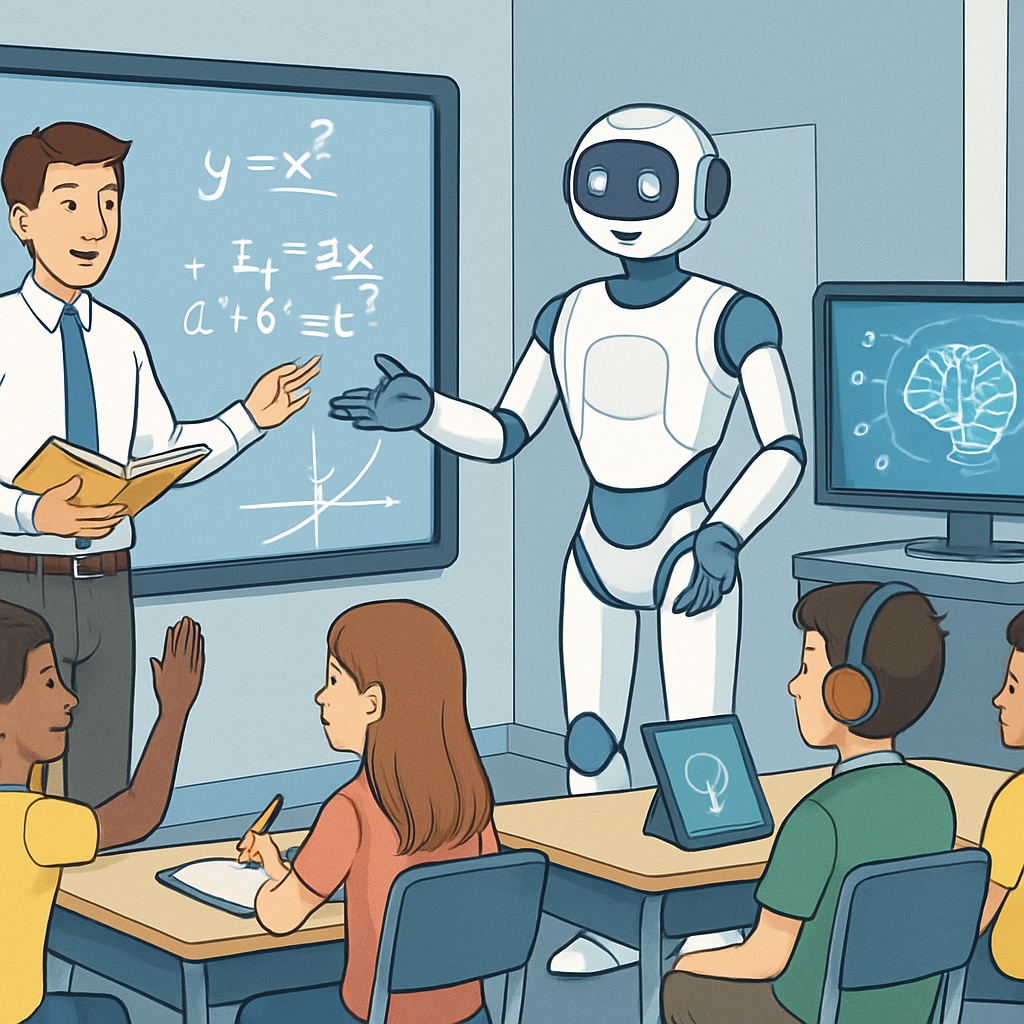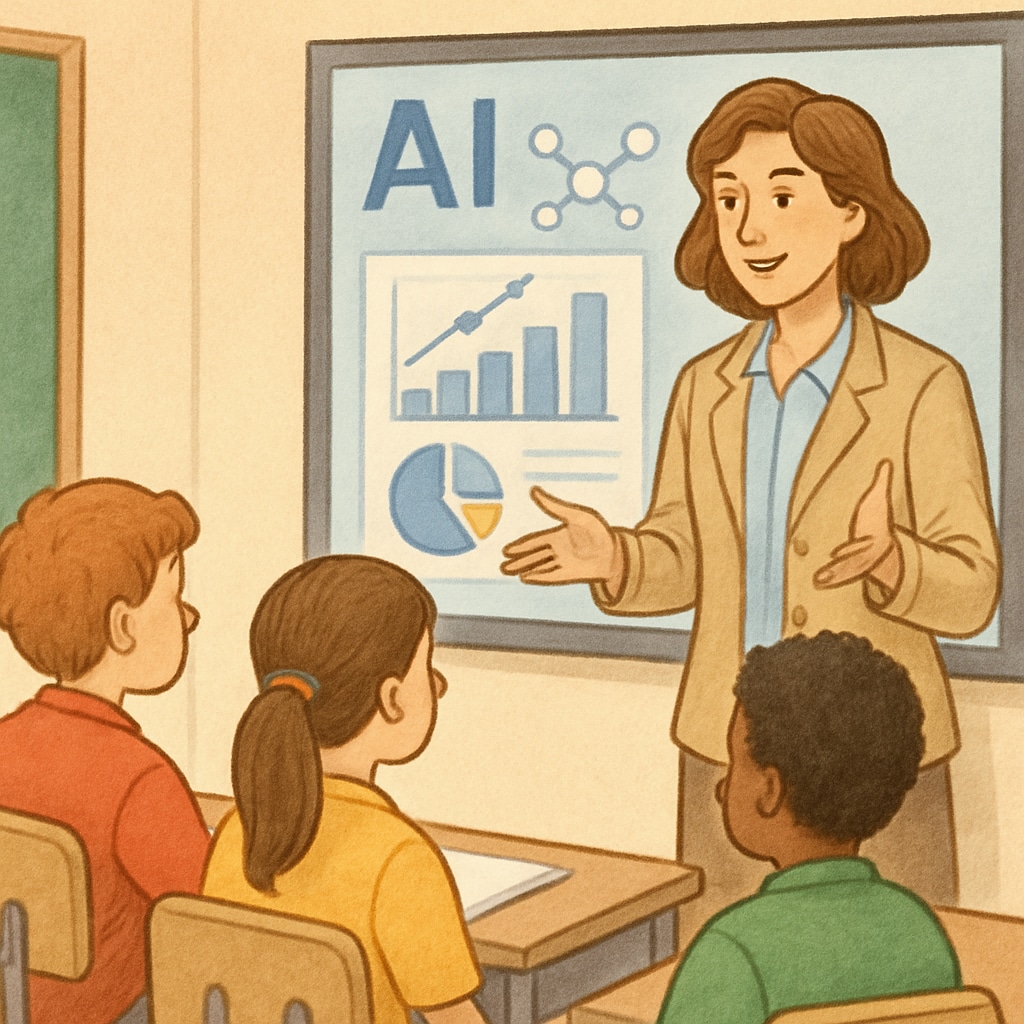The integration of AI into education, particularly with tools like Google Gemini, raises critical questions about the future of teaching. How will AI redefine the value of educators, their roles, and their salaries in an increasingly automated world? As schools and institutions embrace efficiency-driven technologies, the professional worth of teachers—a cornerstone of the education system—may be under unprecedented scrutiny.
How AI is Reshaping the Classroom
AI technologies, such as Google Gemini, are transforming classrooms by automating administrative tasks, personalizing learning experiences, and providing real-time analytics on student performance. For instance, AI can create customized lesson plans based on individual student needs, reducing the workload of teachers. Moreover, it can track student progress and highlight areas of improvement with remarkable accuracy.
However, this rapid technological advancement leads to a pressing question: if AI can handle many of the traditional responsibilities of teaching, what unique value do human educators bring to the table? While AI excels at delivering information, it lacks the emotional intelligence, empathy, and moral guidance that teachers impart to their students.

Teachers’ Value in an AI-Driven Education System
In the face of AI’s growing capabilities, educators’ value lies in their ability to nurture creativity, critical thinking, and interpersonal skills—qualities that machines cannot replicate. Teachers play a pivotal role in fostering ethical reasoning, resilience, and emotional well-being in students, which are crucial for their holistic development.
Nevertheless, the perception of teachers’ importance could be diminished if stakeholders prioritize efficiency and cost-cutting. In such scenarios, the financial investments in human educators might be questioned, leading to potential salary stagnation or reductions. This possibility underscores the need for teachers to advocate for their indispensable role in shaping future generations.
The Impact on Teacher Salaries and Career Prospects
AI’s integration into education could also disrupt traditional salary structures for teachers. With AI handling repetitive tasks, institutions may justify lower wages or fewer positions. However, this shift might also create new opportunities for educators who adapt to the AI-driven landscape. Teachers skilled in leveraging AI tools could transition into hybrid roles, such as AI curriculum designers or educational data analysts.
To remain relevant, educators must embrace continuous learning and upskilling. Professional development programs focusing on AI literacy, data analysis, and technology integration can empower teachers to navigate the evolving education landscape confidently.

Moreover, policymakers and educational institutions must ensure that the adoption of AI does not compromise the quality of education or undervalue teachers. Transparent salary frameworks, aligned with the new demands of the profession, are essential to maintain fair compensation and attract talent to the teaching workforce.
Preparing for the Future of Education
As AI continues to permeate education, stakeholders must address its implications thoughtfully. Teachers, administrators, policymakers, and technology developers must collaborate to create an ecosystem where AI complements, rather than replaces, human educators. Such an approach can maximize the benefits of AI while preserving the irreplaceable value of teachers.
In addition, governments and institutions should invest in research to understand the long-term impacts of AI on education. By anticipating potential challenges and proactively addressing them, the education sector can ensure a balanced integration of technology and humanity.
Key Takeaways:
- AI tools like Google Gemini are transforming the classroom, raising questions about the role of educators.
- Teachers bring unique value through emotional intelligence, ethical guidance, and holistic student development.
- AI may influence salary structures, but it also opens pathways for new, hybrid roles in education.
- Continuous professional development is essential for teachers to thrive in an AI-driven landscape.
- Collaboration among stakeholders is vital to ensure AI complements, rather than replaces, human educators.
In conclusion, the integration of AI into education is both a challenge and an opportunity for teachers. While it may prompt a reevaluation of their roles and salaries, it also highlights the irreplaceable qualities that only human educators can provide. By adapting to these changes, teachers can continue to play a central role in shaping the future of education.


